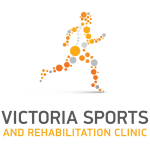FAQS – Headache & Migraine Treatment
Do I need to see my doctor?
On occasions, it may be necessary that you go and see your doctor. These include
- If you haven’t seen a doctor before and you have a new headache, which started less than 3 months ago
- Sudden severe onset of a new type of headache
- If you have had any recent head traumas, concussions or whiplash type injuries
- If you are over the age of 50 and you are suffering from a new type of headache
- If you have any numbness, tingling or weakness in your face, arms, legs, hands, feet or a combination of both when you have a headache
- If you’re confused or have any slurring or difficulty with your speech, dizziness (which isn’t normal for you), trouble breathing, trouble swallowing and any sweats, fever or chills
- If you have double vision and or drooping of your eyelids
We also recommend that if you have never seen your doctor about your headaches at any stage in your life, it would be wise to mention this to them at your next appointment.
Can I expect treatment in my first session?
Yes, 95% of clients receive treatment in their first session. We do our very best to ensure some form of treatment is given in the first session and this will typically take up about 15 minutes of the 60 minute consultation.
However, we take our time to gather an extensive case history and complete a thorough examination, so sometimes treatment may be shorter than what you expect. Our initial consultation is about understanding all of the complexities of your condition and developing a plan to help us manage your headaches and migraines.
On rare occasions, our case history leads to the discovery that your neck isn’t the cause of your headaches. In this case we will not treat you and you will be referred to the relevant specialist who can best help you.
What things can I do at home to help my headaches?
There are lots of things you can do at home that may help with your pain.
Keeping a headache diary – if you keep a headache diary you can keep track of when you get your headaches, which can help you prevent them in the future. Things you should keep track of are:
-
-
- What you ate/drank prior – this may help you identify which foods/drinks may be a trigger for you
- How much water your drink per day – dehydration can cause headaches, keeping track of your water intake helps combat dehydration headaches
- Things you did that could have contributed to your pain or put excessive pressure on your neck – exercises like sit ups, HIIT sessions, running, swimming etc
-
The overall goal of your headache diary is for you to understand the things contributing to your pain and try and avoid these where possible.
Understanding your triggers – Triggers are not the underlying cause of your headaches but they do ‘trigger’ headaches. If you understand what ‘triggers’ your headaches then you are in a better position to avoid these things. Triggers include chemical sensitivities, food sensitivities, smells/perfumes, bright lights, dehydration. You can use a headache diary to understand patterns of triggers that may be evident. Eg. everytime I have a glass of red wine or fried food.
Get adequate sleep – There are well established links between sleep and headaches/migraines. To get adequate sleep, try going to bed and waking at the same times each night, avoid using your phone for the last hour before bed and the first hour after waking. Avoid caffeine in the afternoon and limit yourself to one coffee a day.
Frequent low-moderate level physical activity – It’s well-known that frequent low-moderate level exercise can be great in reducing the number of migraine days a patient experiences (Lemmens et al., 2019). A good way to get this is going for a 30-60 minute brisk walk, slow jog or cycle 3-5x a week. Exercise has also been shown to have a similar effect on the number of migraine days experienced when compared to preventative medications such as topiramate and tricyclic antidepressants which can have side effects such as weight changes, fatigue and memory loss (Lemmens et al., 2019). Be careful if exercise is a trigger for you though, the last thing we want is for it to give you a headache.
Mindfulness/meditation – Research shows that meditation mindfulness may help with the frequency and intensity of headache and migraine (Gu, Hou and Fang, 2018). Mindfulness meditation is effective in reducing mental stress (Ireland et al., 2017) and therefore may help your headaches because mental stress is reported as the most common trigger and aggravating factor of chronic tension type headache (Cathcart et al., 2012). There are a number of apps that can help you kickstart your mindfulness meditation journey. These include – Headspace, The Resilience Project, The Mindfulness App, and Calm.
If you would like to discuss your treatment options or to make an appointment please call the clinic on (03) 9787 7702 or email info@vsrc.com.au. If you would like to read more regarding headaches and migraine click here
